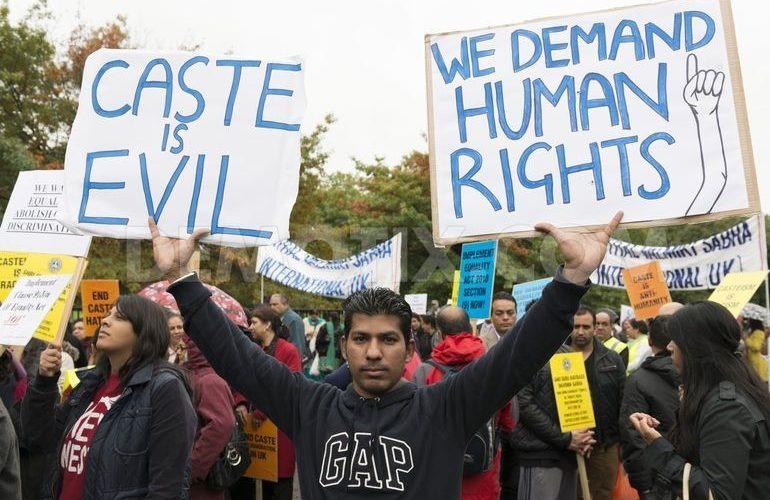EU published last week a communication on a strategy to strengthen cooperation and partnership with India. The new strategy aims at supporting modernisation in India and developing common responses to global and regional issues. Human rights issues in India appear to play a marginal role in the strategy. According to the communication, India is an important trade partner for the EU and an emerging global economic power, with growth rates of about 7 %. In 2017, EU was India’s first trading partner, while India was the EU’s ninth largest trading partner. Close to 6,000 EU companies are present in India.
For the time being there is no free-trade agreement between EU and India. Negotiations on an agreement were suspended some years ago because of gaps in their positions. EU wants to negotiate a “win-win agreement” and is ready to resume talks, according to a source in the European Commission.
At a press briefing at the European External Action Service (EEAS), a senior EU official said that EU expects to become a partner of choice in India’s modernisation. “We want to help building a modern India and to bring our two democratic spaces closer.” India is rapidly transforming but is considered not an easy country to deal with.
"India is a key player in our interconnected world", said EU foreign policy chief Federica Mogherini (20 November). "We want to further reinforce our political, economic and people-to-people ties with India in order to address together global challenges, to promote together economic growth and to expand together business opportunities.”
She added that the EU and India are committed to seize opportunities to support and promote effective multilateralism and solutions whenever peace and stability are in danger.
The communication, a joint document adopted by the Commission and EEAS, replaces older communications and follows in the wake of the EU-India Summits in 2016 and 2017. It lists a number of areas for cooperation, such as the Iran nuclear deal, peace in Afghanistan, counter-terrorism, cyber-security, maritime security, technology-sharing, and climate change.
As regards common values and human rights, the communication states that the EU and India, as the world’s largest democracies, have a common responsibility to promote peace, democracy, the rule of law and respect for human rights, including at the multilateral level and the UN.
The communication mentions gender equality, women’s empowerment, inclusion of young people and persons belonging to minorities, the elimination of any form of discrimination, and freedom of religion and belief.
Caste-based discrimination
However, in recent years the European Parliament has voiced deep concern over India's human rights situation with regards to Dalits in India, the lowest caste (“untouchables”) in an ancient caste-based system of discrimination and segregation where a person´s fate in life is determined at birth.
Although discrimination is banned in the Indian constitution, caste still rules in rural India. The New York Times wrote recently (19 November) that the Dalits make up about 15 – 20 % of India’s total population and are subject to “discrimination with increasing violence”. A former Indian Prime Minister has described the caste system as a form of hidden apartheid.
The European Parliament noted already in 2007 “with concern the lack of substantive EU engagement with the Indian government, notably within the EU-India Summits, on the vast problem of caste-based discrimination.” In 2013 it repeated its calls for the inclusion of caste-based discrimination as a human rights issue in future EU human rights policies, strategies and action plans.
It also urged the EU to raise the issue of caste-based discrimination at the highest level with the governments of affected countries during bilateral summits and other international meetings and called on the Commission and the EEAS to include, where relevant, a "caste-based discrimination clause" in all trade and association agreements.
Although caste-based discrimination in India is a serious and sensitive issue in the EU-India dialogue on human rights, EU's latest annual report on human rights and democracy (May 2018) hardly mentions anything about the problem in India, as if the modernisation of the country will make such discrimination disappear in the future.
The report admits "that the taboos associated with caste-based discrimination continue to hamper the opportunities for frank discussion with some countries where the notion of caste persists."
Asked by The Brussels Times if and how the issue is addressed by EU in the dialogue with India and its support to development projects, EEAS referred to its 2013 guidelines on the protection of freedom of religion or belief:
“Certain practices associated with the manifestation of a religion or belief, or perceived as such, may constitute violations of international human rights standards. The right to freedom of religion or belief is sometimes invoked to justify such violations. The EU firmly opposes such justification.”
M.Apelblat
The Brussels Times

